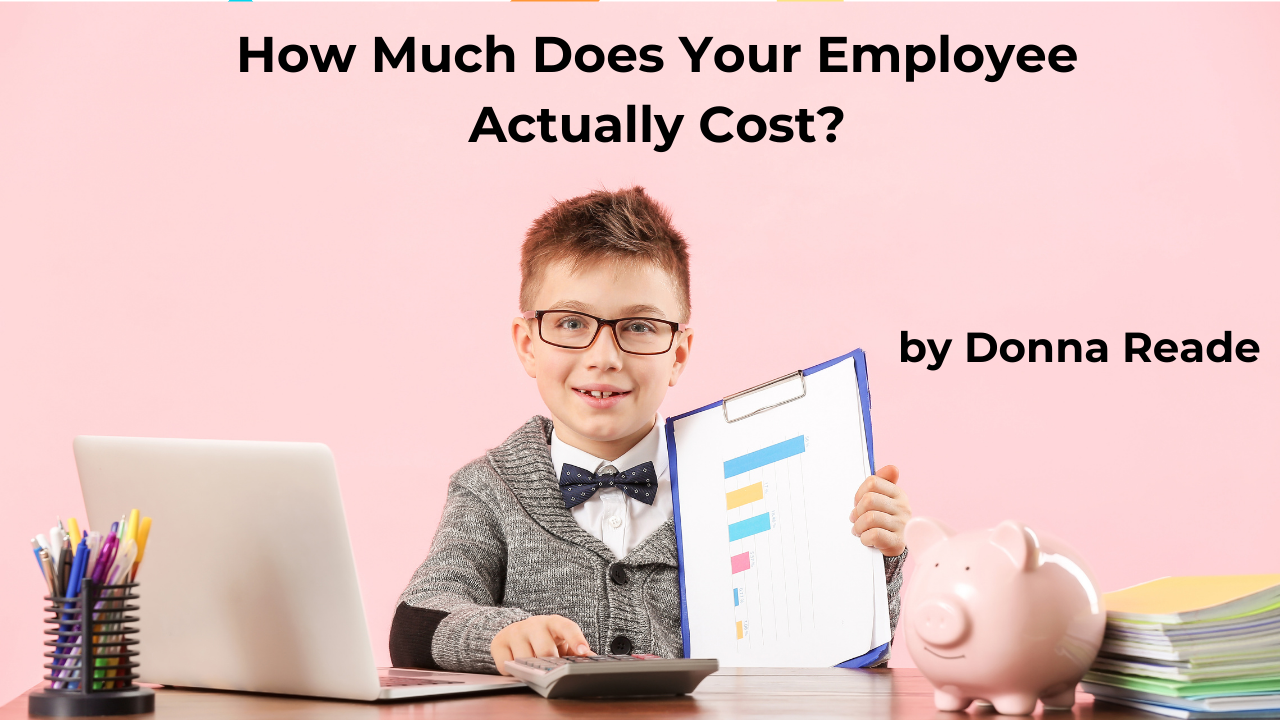How Much Does Your Employee Actually Cost?
Aug 21, 2023
Are you thinking about adding another team member?
If you are, you might be underestimating the total cost of hiring an employee. On average, an employee's total cost is 25%-40% higher than their wages/salary.
This means that if you plan to pay an employee $15/hour, it will actually cost you around $17-$18/hour.
As I work with business owners that are looking at bringing on employees I make sure we plan for the costs of bringing on employees so they can fully plan for the expenses from day one.
As you consider hiring your next employee, here are some additional costs to keep in mind.
Payroll Taxes
In addition to paying your employee's wages/salary, you will also need to pay employment taxes.
These taxes cost employers around 15% or more of an employee's wages, including Social Security, Medicare, Federal & State Unemployment Insurance Tax, Workman's Compensation Insurance, local payroll taxes, and more.
Keep in mind that these figures are subject to change.
Paid Time Off
To be competitive, you will also need to offer paid time off benefits to your employees.
These benefits can include vacation, sick leave, personal time off, paid holidays, and paid breaks (as required by local & federal employment laws).
The cost of these benefits depends on the employee's wages/salary, the size of the business, the company's location, and the industry standard. Some states require mandatory paid sick leave so make sure you are up to date with what is required in the states where your employees are located.
Health Insurance
Most employees expect to receive health insurance benefits from their employers.
However, this benefit can come at a high cost to the employer. You will need to consider the monthly premiums for your employees' health insurance benefits.
Some employers pay 100% of the monthly premium, while others pass along a portion of the cost to the employees.
Retirement Savings Benefit
Another consideration is whether you will offer retirement savings plans such as a Simple IRA or a 401(k).
Both the employee and the employer fund these retirement benefits, and typically, the employer offers to match the employee's contribution, up to a certain percentage.
On average, the employer's contribution costs businesses 3-6% of the employee's salary/wages, not including the cost of managing the retirement plan.
Many states are starting to mandate retirement plans for employees.
Make sure you are up to date with the options in the states where your employees are located.
Overhead Costs
There are also additional overhead costs to consider when hiring an employee, such as workspaces, office supplies, new hire training, human resources department, payroll processing, insurance, and miscellaneous costs.
These costs can add up quickly and should be included in your budget when hiring an employee.
Hiring an employee can be costly, and it's essential to keep these additional costs in mind when budgeting for a new team member.
An employee who is hired at an annual salary of $35,000 will cost the employer at least $45,500, if not more, in additional costs.
When you decide to hire an employee, it's crucial to budget for these hidden fees to ensure that you're not caught off guard by unexpected expenses.
Stay connected with The Happy Outsider
Don't worry, your information will not be shared.
We hate SPAM. We will never sell your information, for any reason.


